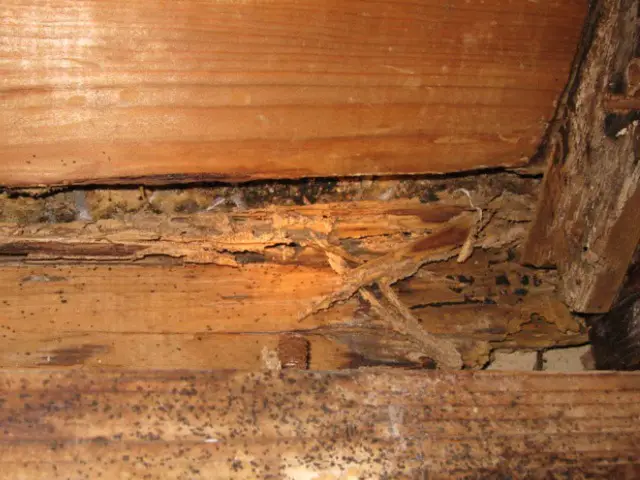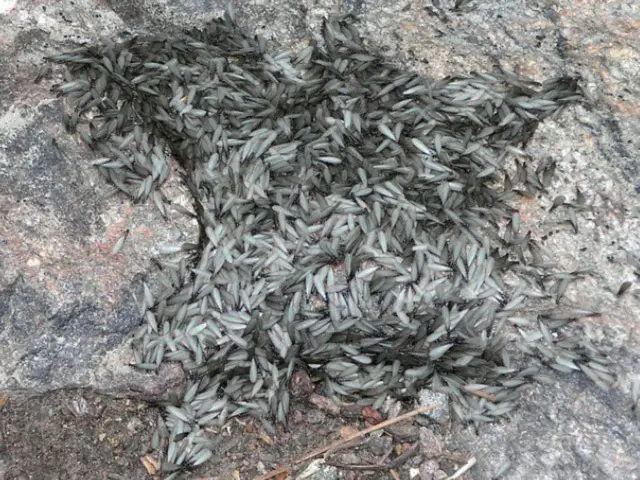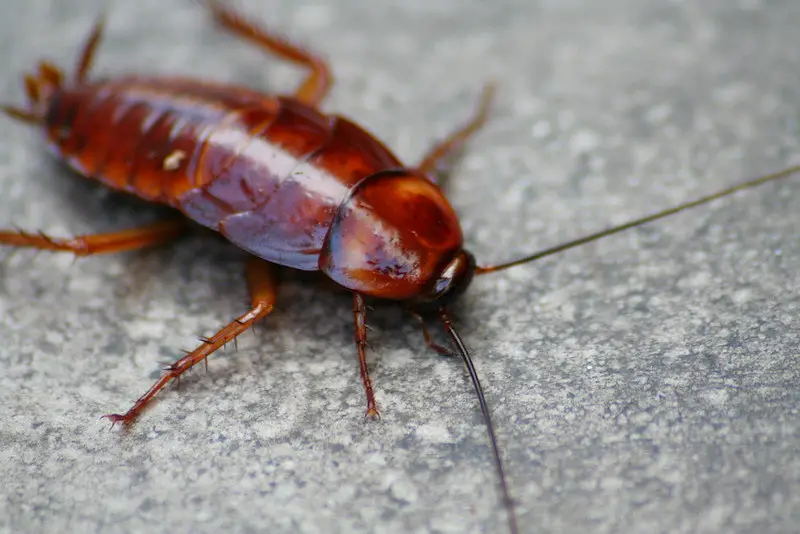Most Georgia homeowners would agree that our climate is hot all year long. And Georgia, like many other states, may undergo drastic weather changes as we’ve seen in other parts of the United States. One of the noticeable changes is flying termites earlier than before.
As we shift from the mild winter to spring and then from spring to summer, Georgia will continue to become hotter and more humid. This makes for great beach weather, but this is also the peak condition for most flying termites.
Flying Termites in Georgia
In Georgia, flying termites are the early sign of a termite infestation. If you are a Georgia homeowner, your home is either infested with termites, or it will be infested with termites.
Many Georgie homes become termite infested when a “swarm” occurs. Swarmers can also indicate a termite infestation. Once inside or under your house, termites won’t leave on their own.
Termite treatment is the only effective way to get rid of termites in Georgia. You could face expensive home repairs if you ignore or overlook the signs.
Homeowners may find damage to wood, stains, fecal pellets, wings, and paint peeling. Any of those signs can be the tell-tale sign of a termite infestation. Worse, termites are often invisible, and their activity is hidden. They can hide in hard-to-reach places, and without the help of a professional, termites often go undetected.
A termite inspection is needed to find these pests in or around your home. That’s why you should invest in an annual termite inspection.
Where are flying termites coming from?
So, where do flying termites come from? Flying termites come from termite colonies near and far away. Flying termites or a swarm is when the winged members of a termite colony fly to start a new colony.
Flying termites fly from the galleries or nest in an effort to locate a mate to either expand an existing colony or start a new colony. The “swarm season” in Georgia is predominantly from mid-spring to autumn, depending on the species.
Flying termites are often attracted to light and fly and land on or near your home to start an infestation. Here in Georgia, 20 or more species of termites can be found flying near and in private homes.
Fortunately, not all termites are harmful to your home. But if you aren’t a termite expert, good luck trying to identify flying termites around your home.
Identifying all the different flying insects can be difficult for homeowners. But trained termite inspectors can help. There are many helpful tips and tricks if you find flying termites in your home but are unable to determine if they are ants or termites. For example, ants will have an elbowed antenna and a pinched abdomen, whereas termites will have a straight antenna and a broad waist.
How can I get rid of flying termites?
You can get rid of flying termites are exterminated by either a soil treatment or in-ground bait stations. The soil termite treatment creates an invisible liquid barrier around your home, killing termites that crawl through the treatment zone quickly. It protects your home from termite invasion.
The termite bait uses an insect growth regulator. The active ingredient in the bait is passed throughout the entire termite colony, resulting in complete termite colony elimination. You should schedule a termite inspection if you suspect your home may be infested with subterranean termites. Flying termites are a real problem in Georgia, and you need a trained professional to help you with the best treatment options.
How much does it cost to get rid of flying termites?
Getting rid of termites can be expensive, especially if you consider repairing the termite damage. The longer you wait, the more expensive it will become to termite treat your home. If you have a termite infestation or want to stop the problem before it starts, contact a pest control company today and schedule a free inspection.
Once your home is inspected, you can discuss the recommended treatment to get rid of your drywood or subterranean termites or help prevent them in the first place.
If you have found flying termites around your home, get your home inspected.




